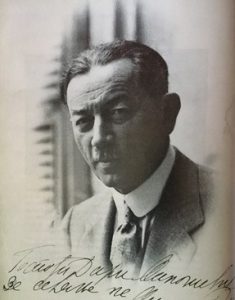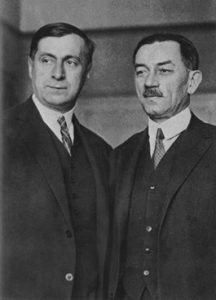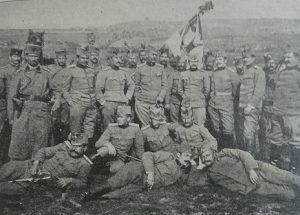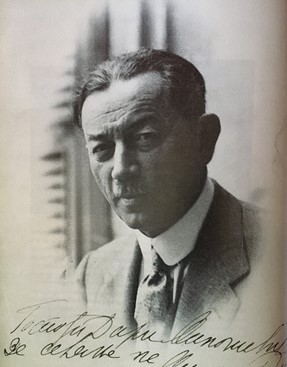OUR BLOG
MILAN RAKIC
SERBIAN DIPLOMATS
SERBIAN DIPLOMATS
Milan Rakic was born in 1876, right in the middle of Knez Mihailova Street, in a respectable Belgrade family. His father, Dimitrije Mita Rakic, was the Minister of Finance and the man who first translated Victor Hugo’s “Poor People” into Serbian. His mother Ana was the daughter of academic Milan Milicevic, a writer and president of the Serbian Academy of Sciences.

From an early age, his father provided him with extensive education and knowledge. He attended piano and French classes. His grandfather, Milan Milicevic, a distinguished connoisseur of folk life and national culture, had a great influence on his personal development.
Mile Rachi, as he was called, went to elementary and high schools in Belgrade, and later to the Faculty of Law in Paris. It was there that he fell in love with poetry. He was learning about the form of the songs he later wrote and poetic skills from French authors, adapting them to his own sensibility. In Paris, he became friends with, at that time very famous, Jovan Ducic, who encouraged him to write poems. His first collection was well received by the audience and opened him the doors to art admirers.

Jovan Dučić i Milan Rakić
From office clerk to diplomat
It is interesting to note that Rakic, although remembered as a poet, wrote only about fifty works and that he spent his entire life as an extremely acknowledged Serbian diplomat serving in Skopje, Thessaloniki, Copenhagen, Sofia and Rome.
He started his diplomatic career in Belgrade, and quickly progressed from regular office clerk to a diplomat.
Fighter for national liberation
During his service in Skopje and Pristina, in 1906 Rakic was an active participant in the struggle for national liberation.
Before the start of the Balkan War, he left his diplomatic position in Belgrade, in the Ministry of Foreign Affairs, and joined the detachment of Vojvoda Vuk as a volunteer. “I left the consulate where I no longer had anything to do, so I took the rifle,” Rakic wrote.
After the liberation, he was the first to enter Pristina. It is noted that he first went to the consulate, where he looked for a large church bell, which he had hidden from the Turks in the basement in 1908. Together with the soldiers, he hung it on a branch in the gate of the Orthodox Church and was the first to pull the rope to announce the liberation.
Another interesting fact is related to the poet’s service in the Serbian army. During the First Balkan War, the Serbian army often told his poem “At Gazimestan”, but only a few knew that its author was among them.
Rakić was awarded the Gold Medal for Courage for his participation in the war in 1912. In the same year, he was one of the members of the Serbian delegation at the Peace Conference in London held between the Balkan states and Turkey, and was in charge of defining borders with Albania.

Serbian Army in Kosovska Mitrovica
At the beginning of the First World War, he served in the ministry in Nis. During the war he was an adviser to the diplomatic offices in Bucharest, Stockholm, Copenhagen, Sofia, and from 1927 in Rome, where he spent the last days of his diplomatic career, fighting against Mussolini’s aggressive politics towards the Kingdom of Serbs, Croats and Slovenes.
He spent the rest of his life in Belgrade, twice rejecting the offer of the Pavle Karadjorđevic for the position of the king’s envoy in Washington, and later in London.
He was a member of the Serbian Royal Academy and was awarded with numerous decorations. Along with Aleksa Santic, he is considered the most successful poet who renewed Serbian patriotic poetry. Rakic’s poems have been translated into many languages, including German, French, Italian, Russian, English, Hungarian and Bulgarian.
Milan Rakic Poetry Award, awarded by the Association of Serbian Writers, was established in his honor. One street in Belgrade`s municipality of Zvezdara has been named after him.
He was married to Milica, the sister of his childhood friend Vladeta Kovacevic and the daughter of the Minister, historian and academic Ljubomir Kovacevic. She was considered as one of the most beautiful women in Belgrade at the time.








 2018
2018